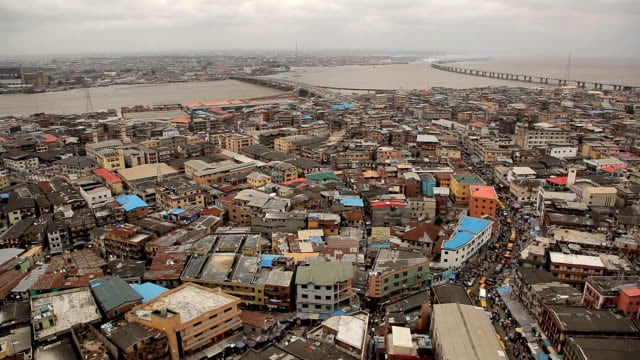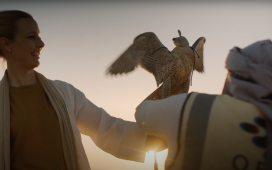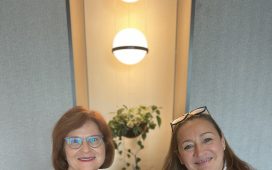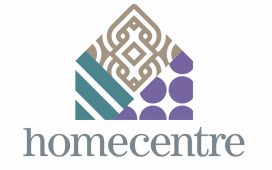
For those of us operating in emerging markets where time is money and creativity the need of the hour, I propose replacing our ‘appetite for the acclaimed’ with ‘curiosity for the unknown’. For too long, we’ve been inclined to benchmark our creativity against the usual sources of inspiration in the West where businesses operate on the bedrock of mature economies with structure, systems and resources. But our creative processes must become more inclusive if we are to produce work that sets us apart rather than elicit a ‘seen before’ response. The time is ripe to look at unlikely sources for inspiration – consider shifting your gaze away from the West to West Africa. Countries like Ghana and Nigeria have served as incubators for creatives that thrive with meager resources. From there, underdogs have emerged and broken onto the world stage despite a severe lack of systemic or structural support. As businesses navigate COVID-disrupted marketplaces, it is from such less-explored breeding grounds that we have more opportunities to learn.
Lost in the wilderness of PR? Join Campaign Online Briefing – The Comms Survival Guide webinar on 26 Oct.
That I, an Indian woman working as a Marketing and Communications professional in Dubai, thought of penning down this clarion call is no accident – it is by design. I was born and raised in the 90s in Lagos, Nigeria’s most populous commercial and cultural hub. While our family lived a life of relative comforts, we could not escape the basic infrastructural failures entrenched in Lagosian life. Schooling there during the 90s, with no electricity for months on end and jerrycans of petrol running dry for our personal power generator, we did homework and studied for exams in candlelight. On days when water supply was erratic, we managed with nothing more than half a bucket per person a day. Till today, for many there, daily struggles like these are an accepted reality but the masses soldier on. Every day, millions of dwellers in West Africa are hustling under very difficult circumstances, yet their voices are taking up space in a rather noisy world much of which is ringing with ‘sameness’. Their distinctiveness is fast gaining the currency of influence. The power of social media together with the open-mindedness of Millennials and Gen Z are calling for brands and A-list celebrities to take notice of the West African might. Allow me to share some examples of Nigerians relentlessly pursuing new opportunities and ushering in possibilities without abandon.
 The #EndSARS protests across Nigeria’s cities emerged from online hashtags powered by the youth, resulting in the government disbanding SARS within a matter of days. Beyond being icons of the Afrobeat phenomenon that has burst into the popular music scene, artists like Davido, WizKid, Burna Boy and Tiwa Savage also used their platform to draw international media attention on the protests. The humble Ghanian and Nigeria staple ‘Jollof Rice’ has gained much epicurean fandom, including an appeal amongst international chefs like Jamie Oliver (who even found himself in an enjoyable #JollofGate Twitter outrage in 2014). From DVD releases being sold to tired Lagosians stuck in gridlocked traffic, to Nollywood movies now streaming on Netflix, authentic Nigerian storytelling is resonating with an international audience. In 2018, a Vienna-based Nigerian dance crew ‘broke the internet’ when they showed the fashion world that you could dance rather than walk the runway. In June this year, @IkoroduBois (a group of three Nigerian kids), armed with everyday props like the humble wheelbarrow, created a hilarious and ingenious low-budget trailer remake of Hollywood movie ‘Extraction’, filmed in quotidian environs of Ikorodu, a Lagos suburb. Not only did their video catch Chris Hemsworth’s eye, but it also elicited a generous gift with state-of-the-art filming equipment from Netflix, and an invitation to attend the world premiere of ‘Extraction 2’. Homeless kids turned dance students of entrepreneur Seyi Oluyole’s Dream Catchers Academy have become viral Instagram sensations courtesy Beyonce and Rihanna reacting to their Afro dance videos. There are plenty of such compelling stories.
The #EndSARS protests across Nigeria’s cities emerged from online hashtags powered by the youth, resulting in the government disbanding SARS within a matter of days. Beyond being icons of the Afrobeat phenomenon that has burst into the popular music scene, artists like Davido, WizKid, Burna Boy and Tiwa Savage also used their platform to draw international media attention on the protests. The humble Ghanian and Nigeria staple ‘Jollof Rice’ has gained much epicurean fandom, including an appeal amongst international chefs like Jamie Oliver (who even found himself in an enjoyable #JollofGate Twitter outrage in 2014). From DVD releases being sold to tired Lagosians stuck in gridlocked traffic, to Nollywood movies now streaming on Netflix, authentic Nigerian storytelling is resonating with an international audience. In 2018, a Vienna-based Nigerian dance crew ‘broke the internet’ when they showed the fashion world that you could dance rather than walk the runway. In June this year, @IkoroduBois (a group of three Nigerian kids), armed with everyday props like the humble wheelbarrow, created a hilarious and ingenious low-budget trailer remake of Hollywood movie ‘Extraction’, filmed in quotidian environs of Ikorodu, a Lagos suburb. Not only did their video catch Chris Hemsworth’s eye, but it also elicited a generous gift with state-of-the-art filming equipment from Netflix, and an invitation to attend the world premiere of ‘Extraction 2’. Homeless kids turned dance students of entrepreneur Seyi Oluyole’s Dream Catchers Academy have become viral Instagram sensations courtesy Beyonce and Rihanna reacting to their Afro dance videos. There are plenty of such compelling stories.
To help me understand what it is that makes Nigerians trudge on in the face of enormous daily challenges, I turned to David Adeleke, a communications and media expert based in Lagos. “The word ‘impossible’ is not in our dictionary. For Nigerians, it is less about whether something is possible and more about how we can make things happen. Nigerians are very aspirational people and have the drive to succeed. The current generation belongs to families who have worked very hard, and now they finally have the chance to lead a better life than their grandparents and parents did.”
A cultural powerhouse, Nigeria’s ‘get-rich’ entrepreneurial spirit is a testament of its potential. Adeleke says, “Social media is the best thing to have happened to Nigerians. Our creativity is there for all to see and brands can identify talent across multiple industries.” Recognizing the collective economic value to be gained from collaboration, Adeleke himself exemplifies a Nigerian pushing the needle in the country’s media and communications industry. In addition to his full-time job, he also authors his newsletter ‘Communiqué’ to galvanize the creative community. “In Nigeria, it is very important to get things done, and we take pride in doing them our way without seeking validation from others.” He continues, “Across the world, there is a growing rejection to the imposition of western values and, more often than not, ideas from the West lack the ‘relatability’ factor.” Ultimately, it is soft power fostering Nigerian ingenuity; Adeleke quips, “Our ability to create despite our limited resources and little or no systemic support is propelled by our cultural diversity, collective spirit and collaborative nature.”
Let us acknowledge that there’s a lot to learn from West Africa, whether it’s about having a strong sense of self, uniquely leveraging social media, donning a never-give-up attitude, consistently creating or embracing collectivism over individualism. The next time you’re in a bit of a creative rut, maybe imbibing a bit of their spirit could land you your next big breakthrough piece of work.









